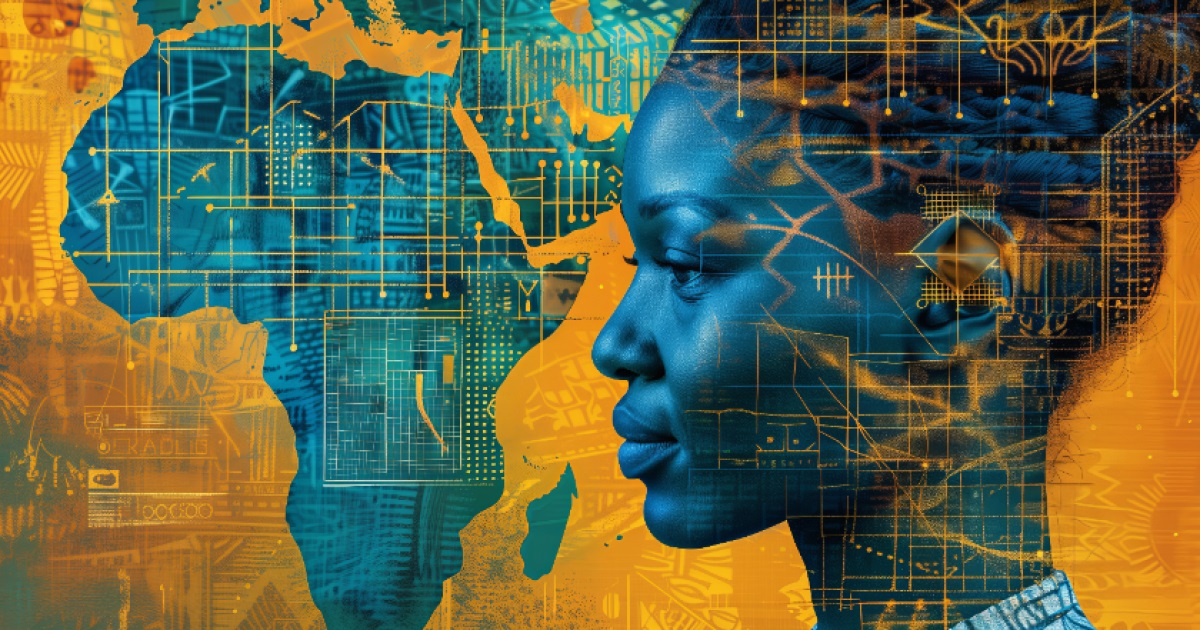Artificial intelligence (AI) is reshaping economies across the globe, and Africa is increasingly positioning itself to harness its transformative potential.
With opportunities spanning financial inclusion, agriculture, healthcare, and digital innovation, AI promises to narrow wealth gaps, enhance productivity, and drive sustainable economic growth on the continent.
Analysts expect AI to contribute about USD 15.7 trillion to the global economy by 2030, and Africa’s digital adoption gives it a unique chance to claim a significant share of this growth.
One of Africa’s greatest advantages lies in its demographics and resources. The continent is home to 60% of the world’s arable land and one of the youngest populations globally. This combination creates fertile ground for AI-driven solutions to address local needs, with young people emerging as early adopters and frequent users of digital tools.
Nigeria is quickly becoming a hub for AI innovation. The country attracted $218M VC investments in AI in 2023, with the AI market projected to reach $1.4 billion by 2025. The government’s proactive stance, coupled with private sector engagement, is fueling applications across payments, security, healthcare, agriculture, and travel.
In financial services, AI adoption is accelerating. By February 2024, 13 Deposit Money Banks in Nigeria had deployed AI-powered chatbots to improve customer support. AI is also being used to detect fraud and provide robo-advisory services for financial planning, now regulated under the Robo Advisory Services Rules introduced in 2023.
In agriculture, tools like Crop2Cash’s FarmAdvice hotline are helping farmers access expert advice in local languages, while startups such as Kitovu use AI-driven advisory platforms to boost yields and cut costs.
South Africa has cemented its role as a leading AI research and innovation hub, driven by significant telecom and data infrastructure investments. Between 2019 and 2024, telecom companies invested USD 11.45 billion in fiber optic networks and data centers, laying the groundwork for a vibrant digital economy.
Telecom giants like MTN South Africa are forging strategic partnerships with China Telecom and Huawei to expand 5G, AI, and cloud services. Meanwhile, cloud computing is surging, with Huawei Cloud alone growing more than sixteen-fold since launching a local data center in 2019. South Africa also leads AI research in financial services, with 94 publications surpassing Nigeria and Tunisia.
Kenya is emerging as a regional leader in responsible AI adoption. Government-backed strategies and a thriving startup ecosystem are creating new opportunities in agriculture, finance, and energy.
In finance, Kenya’s National AI Strategy 2025 highlights AI’s role in extending access to financial services. The Hustler Fund, launched in 2022, uses AI-powered credit scoring to deliver low-interest loans to small businesses, while firms like M-KOPA offer risk-based lending to underserved customers.
Kenya is also making bold investments in infrastructure. The National Optic Fiber Network Backhaul Initiative (NOFBI) aims to expand connectivity with over 100,000 km of fiber by 2027. At the Global AI Summit on Africa, Cassava Technologies, in partnership with NVIDIA and the Kenyan government, announced a GPU cluster designed to position Kenya as a regional AI hub. In agriculture, tools such as Virtual Agronomist and PlantVillage are providing farmers with tailored insights on soil health, pest detection, and crop management.
Morocco is taking a proactive role in AI adoption, particularly in healthcare, energy, agriculture, and finance. Digital transactions are projected to rise to USD 8.47 billion by 2028, reflecting a strong shift toward digitalization. A recent study of Morocco’s largest banks revealed that AI implementation has reduced operational processing times by 30% and boosted revenues by 15% in branches with higher adoption.


